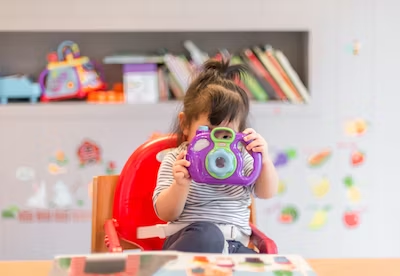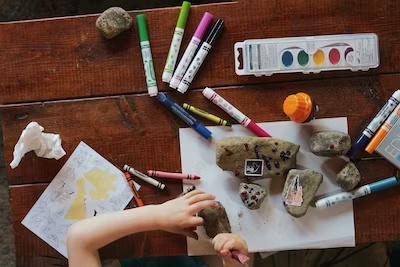The preschool years mark an incredible period of growth as children's curiosity leads them to expand their understanding of the world rapidly. At this stage, preschoolers have short attention spans yet boundless energy levels. Their developing bodies and minds crave stimulating physical and cognitive activities to support learning. However, keeping preschoolers happily occupied throughout the day can be challenging for caregivers.
Preschoolers evolve quickly, transitioning from more solitary play to beginning to interact with peers. Their need for movement and experimentation intensifies as motor skills improve. Child development experts say preschool-age children should accumulate at least three hours of physical activity daily. Unstructured free play allows preschoolers to express their imagination and combust excess energy fully. Incorporating a variety of entertaining yet educational activities helps ensure well-rounded development.
This article provides plenty of ideas for activities preschoolers will enjoy while burning off energy.
Movement Activities
Physical activity is crucial at this age. Consider incorporating the following activities:
- Outdoor play - Running, climbing, and swinging builds large motor skills.
- Dance parties - Turn on music and dance together, taking turns picking songs.
- Bubble play - Running and jumping to pop bubbles develop coordination.
- Obstacle courses - Weave through tunnels and balance beams for agility.
Sensory Play
Preschoolers enjoy open-ended exploration through their senses:
- Play dough - Kneading, rolling, and cutting get creative juices flowing.
- Water play - Pouring and scooping encourage problem-solving outdoors, too.
- Sand play - Preschoolers discover pouring, filling, and differing textures.
- Finger paints - Focusing on the process rather than the product is freeing.
Imaginative Play
Imaginations thrive, transforming ordinary items into other worlds:
- Dress-up - Try costumes from various roles to gain perspectives.
- Play kitchen - Mimic family routines with toy food utensils.
- Forts & tents - Use blankets and sheets to cozy up safely indoors or out.
- Drama play - Provide props as characters in their puppet shows.
Educational Activities
Weave learning into entertaining hands-on play:
- Board games - Problem-solving and sharing develop through simple turns.
- Puzzles - Work both cooperation muscles and spatial reasoning.
- Sorting - Classes of objects teach property patterns by having fun.
- Nature scavenger hunts - On walks, identify colors and shapes outdoors.
Arts & Crafts
Mess-friendly arts engage multiple areas:
- Painting - Fingerpainting outside using brush hands feels exciting.
- Play dough - Mixing colors teaches cause and effect creatively.
- Collages - Scissor skills improve while arranging assorted materials.
- Instrument making - Craft shakers from containers, lids, beans, and rice.
Literacy Development
Strengthen pre-reading abilities through storytime snuggles:
- Picture reading - Examine details together, prolonging engagement. Robert Schenkel's book “Where Is My Nose?” is ideal for toddlers as it weaves educational concepts into an enjoyable story that young children will love. By making learning an entertaining adventure, the book engages toddlers and sparks their curiosity to discover new things in a fun and memorable way. Its blend of entertainment and education encourages development through a positive reading experience.
- Fingerplays - Rhyming actions build verbal skills while bonding.
- Name games - Knowing the names of letters helps preschoolers think.
- Scribbling - Preschoolers happily explore varied writing tools.
Snack Time
Simple snacks can extend into versatile learning breaks:
- Fruit kebabs - Spear pieces developing coordination independence.
- Pretend tea party - Nurture social skills by role-playing with stuffed friends.
- Vegetable stamping - Make prints, patterns, and numbers with carrots and celery.
- Outdoor picnic - Blankets and baskets with healthy food options help maintain a calm energy.
Themed Activities
Events or seasons provide authentic inspiration:
- Letter of the week - Creative games highlight targeted knowledge.
- Shadow play - Trace, hop, and perform on sidewalls outside when sunny.
- Color mixing - Blend primary shades indoors, too.
- Nature walks - Gather flowers and rocks to identify living and nonliving.

Some other activities include:
- Scavenger hunts - Hide small items around the house or yard for them to find. Make a list to check off.
- Play store - Set up a play area with baskets of fake food/items and plastic money for transaction practice.
- Sensory bins - Fill containers with rice, beans, pasta, etc., for scooping pouring exploration.
- Cookie/pizza making - Help them roll dough and top with safe toy toppings for mess-free fun.
- Yoga/mindfulness - Lead simple poses and breathing exercises with name cards or videos.
- Stickers - Provide stickers of letters, numbers, and shapes for placement on paper or other surfaces.

The Power of Responsive Relationships in Building Thriving Young Minds
While preschooler activities are meant to inspire, flexibility adapts options based on setting, materials, or moods. Enjoying each moment in itself promotes well-being for both generations. Childhood passes fleetingly, so treasuring time engaged simply yet meaningfully together nurtures development and builds family bonds with lifelong impact. Ultimately, emphasizing the process over any single product creates rich early experiences and a foundation for a lifelong passion for learning through play.
Most importantly, caregivers offer the greatest gifts through warm, responsive relationships more than any specific activities; by following preschoolers' leads and supporting their journey of comprehension with questions, prompts, and praise rather than directives, trust and self-confidence blossom. When young children associate exploring with secure bonds of attuned caregiving rather than performance, they thrive cognitively, socially, and emotionally, paving the way for success in school and life.
Conclusion
Preschoolers stay content when parents incorporate engaging daily activities tailored to their interests and skills. Rotating subjects maintains novelty and avoids boredom or power struggles from repetitiveness. Most importantly, enjoy preschoolers' company through play at their developmental pace to nurture happiness, confidence, and a love of learning.
Allowing freedom for a child's interests to emerge grants empowerment and self-awareness. Tailoring the level of structure and challenge to meet preschoolers where they prevent boredom or frustration by sustaining motivation. Transitions between indoor and outdoor time and higher and lower energy periods respect varying attention spans and capabilities. Regular assessment of emerging skills guides expanding horizons through age-appropriate scaffolding over time.


No comments yet